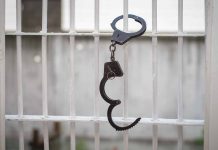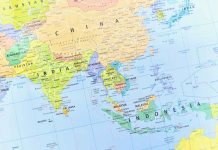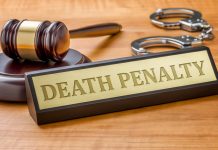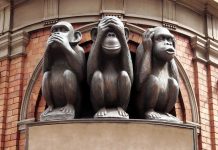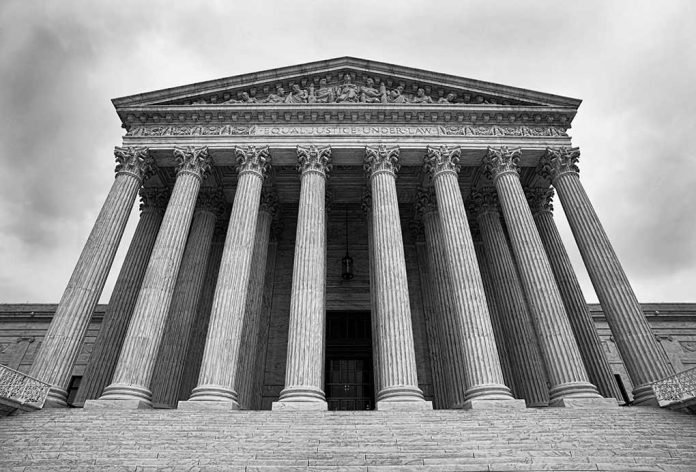
Supreme Court Justice Neil Gorsuch recuses himself from a case involving a billionaire with whom he has longstanding ties, sparking debate on judicial ethics.
At a Glance
- Justice Gorsuch stepped back from a case involving a railroad venture in Utah.
- The case could impact billionaire Philip F. Anschutz, with whom Gorsuch has past connections.
- Recusal follows pressure from ethics watchdogs and Democratic lawmakers.
- Decision comes amid broader scrutiny of Supreme Court ethics.
- Gorsuch cited the court’s new code of conduct in his recusal.
Gorsuch’s Recusal and Its Implications
In a move that has caught the attention of legal observers and ethics watchdogs, Supreme Court Justice Neil M. Gorsuch has recused himself from a case involving a proposed railroad in Utah. The case, which centers on an environmental regulation, could potentially impact the financial interests of billionaire Philip F. Anschutz, with whom Gorsuch has longstanding ties.
The Supreme Court’s clerk, Scott Harris, announced the recusal in a memo, stating it was “consistent with the code of conduct.” This marks the first time a Republican-appointed justice has publicly cited the court’s new code in a recusal decision, which was adopted in November 2023.
BREAKING: #SCOTUS Justice Neil Gorsuch agrees to recuse from an upcoming case about environmental reviews after receiving pressure from lawmakers and advocacy organizations to do so. Gorsuch has ties to a Colorado billionaire who's company filed an amicus brief in the case. pic.twitter.com/ypyUZCPWYo
— Katie Buehler (@bykatiebuehler) December 4, 2024
The Case and Its Potential Impact
The case in question revolves around whether the National Environmental Policy Act (NEPA) requires federal agencies to consider “downline impacts” of projects such as oil drilling. Anschutz’s oil and gas company has filed a friend-of-the-court brief against the environmental regulation, claiming it imposes “absurd requirements” that could cause “significant harms to the project developers and the economy.”
Gorsuch’s decision to step back from the case comes after pressure from ethics watchdogs and Democratic lawmakers, including Representative Hank Johnson. They cited Gorsuch’s past relationship with Anschutz, which includes representing him as a corporate lawyer in the early 2000s and forming a joint property venture.
“To show the American people that the Supreme Court is impartial, you must recuse yourself from any case that directly impacts the financial fortunes of Philip Anschutz, the man who was your previous legal client, who helped raise you to the Supreme Court, and who now treats you to lavish vacations on his exclusive 60-square-mile ranch” – Democratic Representative Hank Johnson
Broader Implications for Supreme Court Ethics
This recusal occurs amid a climate of intensified examination of ethics at the federal level, catalyzed by allegations surrounding undisclosed gifts received by Justice Clarence Thomas. The Supreme Court’s recent adoption of its first code of conduct, while a step towards transparency, lacks an enforcement mechanism beyond voluntary compliance.
While some, like Gabe Roth of Fix the Court, praised Gorsuch’s decision to recuse, others, such as Caroline Ciccone of Accountable US, called for greater transparency and enforceable ethical standards at the Supreme Court. The incident underscores the ongoing debate about the impact of justices’ relationships with influential figures on public trust in the judiciary.
The Path Forward
As the Supreme Court grapples with these ethical challenges, the Gorsuch recusal serves as a reminder of the delicate balance between a justice’s duty to sit and the need to maintain public confidence in the court’s impartiality. With the case set for oral arguments on December 10, following a federal appeals court decision siding with Eagle County, the spotlight on judicial ethics in the nation’s highest court is likely to intensify.
As the debate continues, the Supreme Court faces increasing pressure to clarify and strengthen its ethical guidelines. The Gorsuch recusal may serve as a precedent for future cases, potentially influencing how justices navigate conflicts of interest and personal connections in their judicial duties.
Sources:
- Justice Neil Gorsuch Recuses From Case That Could Benefit Colorado Billionaire
- Supreme Court Justice Neil Gorsuch Recuses Himself From Case After Pressure




